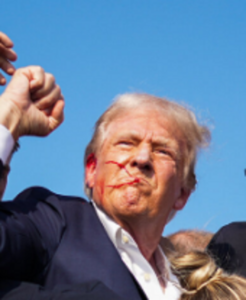Extreme Investor Network Blog: The State of Political Discourse – A Lesson from the State of the Union Address
In today’s politically charged environment, moments from major events often set the stage for broader discussions. The recent State of the Union address went beyond the usual rhetoric, igniting a firestorm of debate about partisanship, values, and what it truly means to support our communities. Below, we analyze not just the content of the address but the ramifications of political behavior on national unity.
A Heartfelt Moment Turned Controversial
During the State of the Union, a poignant moment arose when 13-year-old DJ Daniel, a brave survivor of brain cancer, was honored with a symbolic award from the Secret Service. This touching acknowledgment reminded attendees of the power of resilience and hope in the face of adversity. However, it also illuminated the stark divisions within Congress. Many Democrats chose not to participate in applauding this moment, a decision criticized not just for its timing, but for what it represented about our political landscape.
As observed in the aftermath, former collegiate athlete Payton McNabb echoed a sentiment that resonated with many viewers: “It was heartbreaking… I wish I could say I was surprised, but I’m not.” Such comments underscore a grim reality—political allegiance is superceding empathy. In a time when kindness and solidarity should prevail, actions that reflect a disregard for unity only amplify the divisiveness.
A Lack of Unity?
This incident wasn’t an isolated example. The refusal to honor Laken Riley’s family, who suffered the tragedy of losing their loved one to violence that could have been avoided, and the boycott of applauding other honored guests raised critical questions. When did political loyalty override basic compassion for individuals facing unimaginable situations? As political discourse worsens, we must consider the implications not only for those directly involved but for all citizens observing these events.
Representative Al Green’s removal from the event exemplified the breakdown in civil dialogue. This overt display of disrespect raises concerns about how effectively our elected officials can serve their constituents when their actions are steeped in disdain for opposing viewpoints. Bipartisanship has become a rarity, and the question arises: What happens to the collective interests of the people we elect?
The Realities of Democratic Engagement
Political analysts are increasingly focused on the broader ramifications of such behaviors. The apparent unwillingness of a significant portion of our government to engage in civil discourse hints at a troubling shift away from democratic ideals. As we reflect on these incidents, we are forced to recognize the possibility that many representatives are losing sight of service to the people. The stark contrasts drawn during the State of the Union reveal underlying trends that could shape electoral outcomes significantly.
In today’s polarized climate, the enthusiasm for supporting foreign causes, such as military aid for Ukraine, juxtaposed with a refusal to acknowledge homegrown suffering, raises questions about priorities. Are our representatives authentically committed to their constituents, or are they swayed by external interests? This inquiry is crucial, especially for those invested in the political landscape and its potential influence on economic stability.
Conclusion: The Call for Unity
As members of the Extreme Investor Network, we encourage our readers to think critically about these dynamics. The political climate has implications not only for governance but also for economic prospects as we head towards the next election. The disconnect between political representation and public sentiment needs addressing if we are to foster an environment that cultivates collaboration and benefits all citizens.
In a nation divided, the true challenge lies in resurrecting bipartisan dialogue. Let us strive to build a political environment where every voice is heard, every story acknowledged, and compassion is at the forefront. Only then can we hope for a future where resilience and unity overcome the divisiveness that threatens us today.
For deeper insights on how these political developments can impact investment decisions and economic opportunities, stay tuned to the Extreme Investor Network, where we decode the intersections of politics, economics, and community resilience.

